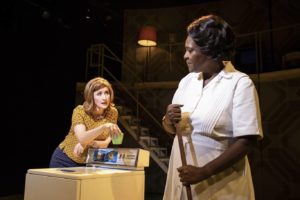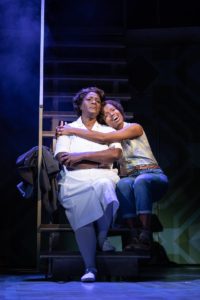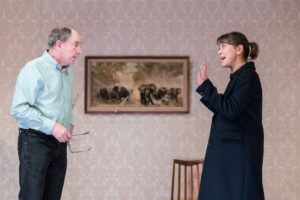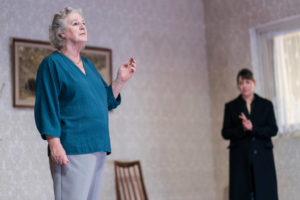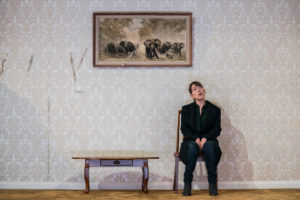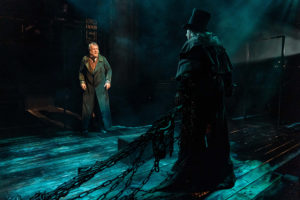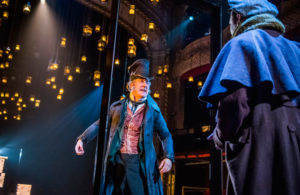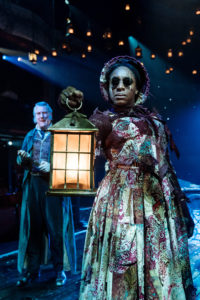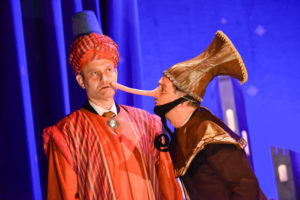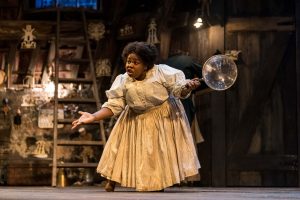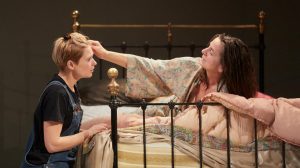All About Eve directed by Ivo Van Hove at the Noel Coward Theatre London
[usr=3]
Watch the YouTube review of All About Eve here
You may well know the story. After all, the film All About Eve is a classic. Scripted by Joseph L Mankiewicz, it tells of a young would-be actor who ingratiates herself into the inner circle of an ageing stage star in order to further her career. If you’re not familiar with the story, be ready for surprises and twists.

The first thing to say is the two leads are mesmerising. It’s worth the ticket price just for their performances. Gillian Anderson as the established and talented Margo Channing conveys the insecurity behind her diva facade that eventually brings out awful behaviour. Lily James as Eve turns on a penny from disingenuous devotion to cold eyed viciousness.
At which theatre can I see All About Eve?
Phoenix Theatre, Charing Cross Road, London WC2H 0JP until 11 May 2019. Booking line: 0844 871 7629 Website: https://www.atgtickets.com/venues/phoenix-theatre
Who directed All About Eve?
Ivo Van Hove
Who stars in All About Eve?
Gillian Anderson and Lily James
Add to that, a performance of great subtlety from Monica Dolan as Margo’s kindly but naïve friend Karen. Her hysterical laughter during a dinner is hilarious.
Also outstanding in a great cast are Julian Ovenden as Margo’s egocentric but loving partner Bill, Sheila Reid as Margo’s devoted but worldly wise Birdie and Stanley Townsend as the monstrous power-abusing critic Addison DeWitt.

The production cleverly puts Margo dead centre, because, although the title is All About Eve, the play is much more about Margo, her coming to terms with getting older, her considering her position as a woman in society, and her fears about losing her younger partner. So Margo herself, the great star, is the centre of attention. Anything that happens that doesn’t involve her nearly always takes place off or to the side of the stage.
In this respect the set by Jan Versweyveld does a great job. Her room is the main set and her dressing table is right in the middle. Beyond the main set, we can see the backstage and wings. Above there are giant video screens that convey live what is happening in these areas.
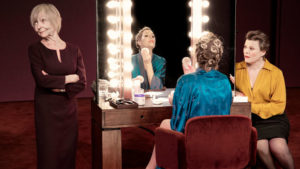
I didn’t like so much was seeing close ups of the people off stage. For me, the joy of theatre is its human scale. I saw no reason why these scenes shown on the screens shouldn’t be acted on the stage, maybe off centre.
There are occasions when the screens add to our understanding. There’s a camera in the mirror so we can see her face with all its middle aged details that the theatre audience can’t see. And there’s a great moment when the reflection of her face ages before our eyes.
A View From The Bridge at Young Vic was one of the best nights of pure theatre I’ve ever had, so I will always think of Ivo Van Hove as a great theatre director but sadly I have to say that, if he likes big screens so much, it’s time he went to Hollywood.
All About Eve is performing at the Noel Coward theatre until 11 May 2019


